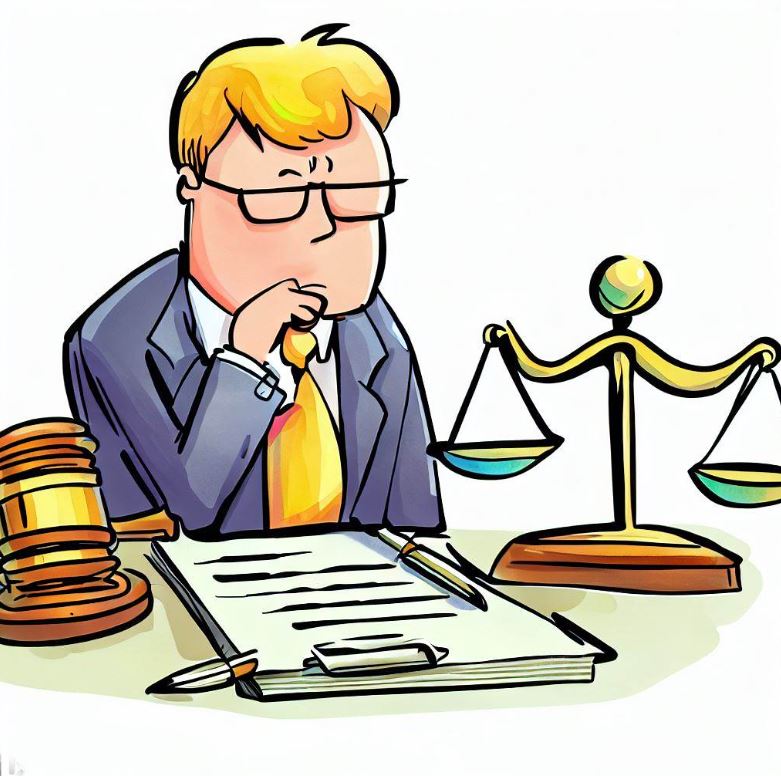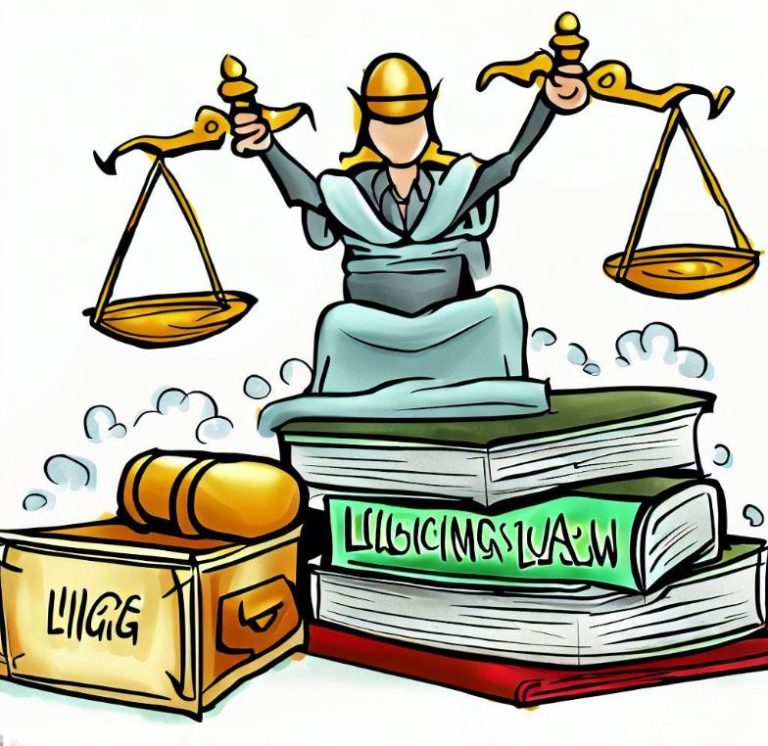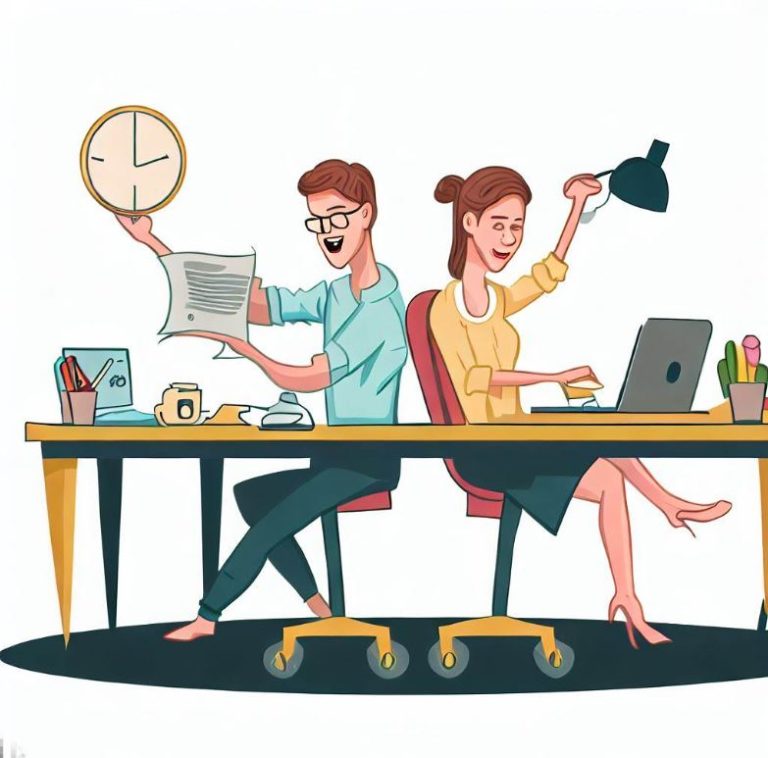Legal Aspects To Consider When Starting A Side Hustle
- Time Management Strategies For Side Hustlers - June 22, 2023
- Side Hustles Suitable For Introverts - June 22, 2023
- Top Side Hustles For Freelancers In 2023 - June 22, 2023
Introduction to Side Hustles
Side hustles are becoming more popular. They give people a chance to follow their dreams or make extra cash. Examples include making crafts, giving consulting services, or driving for a ride-sharing app.
You should think about the lawfulness of your side hustle. Different activities may need special licenses or permits. Tax obligations and possible liabilities should be checked.
Intellectual property protection is important too. If your hustle involves making unique products or services, you must know copyright and trademark laws to protect your ideas. Patent inventions or register trademarks to keep them from being used by others.
Record-keeping is a must. Keep personal finances separate from business finances. It will help you when filing taxes or assessing how profitable your hustle is.
Look for help from a lawyer or accountant who works with small businesses. They will help you with licensing, contracts, insurance, and other legal stuff.
Legal stuff might sound scary, but hey, nothing beats the excitement of being sued!
Understanding the Legal Implications
Understanding the Legal Implications of Starting a Side Hustle:
A side hustle comes with legal considerations that should not be overlooked. It is crucial to understand the legal implications involved to ensure compliance and protect oneself from potential legal risks. Here are some key aspects to consider:
Table: Understanding the Legal Implications
| Legal Aspect | Description |
|---|---|
| Business Structure | Choose the right business structure to operate your side hustle legally and efficiently. |
| Licenses | Determine if you need any licenses or permits to legally operate your specific side hustle. |
| Taxes | Understand the tax obligations and requirements associated with your side hustle and plan accordingly. |
| Contracts | Use written contracts to protect yourself and clearly outline the terms and conditions of your business relationships. |
| Insurance | Consider the appropriate insurance coverage to protect your side hustle from potential risks. |
In addition to these key aspects, it is important to stay updated on relevant laws and regulations that may impact your side hustle. Consulting with an attorney or legal professional can provide guidance tailored to your specific business and ensure compliance.
One notable history is the rise of the gig economy, which has contributed to the growth of side hustles. With the increasing number of individuals engaging in part-time entrepreneurial activities, it has become essential to navigate the legal landscape effectively to avoid legal trouble and protect one’s interests.
Get ready to do some creative accounting – income tax and reporting for your side hustle, because no one wants to be audited by the IRS, unless you’re into orange jumpsuits.
Income Tax and Reporting
Income tax and reporting involve calculating and declaring earnings to the government. It’s an important part of financial responsibility. Tax is based on a person’s total income from jobs, investments, and businesses. Reporting correctly is vital for avoiding penalties and legal issues. Filing income tax returns each year helps obey the law. Keeping records of income is also necessary.
Comprehending the legal implications of income tax and reporting can be complicated. The rules vary from nation to nation, so it’s wise to get expert advice when dealing with this. Certain deductions and exemptions may lower the taxable income, resulting in lesser tax liabilities. The IRS says not reporting or underreporting income can lead to penalties, or even criminal charges – compliance with tax laws is essential to avoid this.
Fun Fact: In 2019, the IRS conducted over 2.4 million audits for income tax laws (source: IRS.gov).
Picking the right business structure is like selecting a partner, you don’t want one that will leave you bankrupt and broken-hearted.
Appropriate Business Structures
When considering the appropriate structure for your side hustle, it is essential to choose a business structure that aligns with your goals and provides the necessary legal protections. Here, we will explore different options and their unique features to help you make an informed decision.
One option is a sole proprietorship, where you, as an individual, are the sole owner of the business. This structure offers simplicity and control over decision-making but lacks personal liability protection. If you prefer a separate legal entity, you may consider a limited liability company (LLC). An LLC provides personal liability protection while maintaining flexibility in management and taxation.
Another option is a partnership, where two or more individuals come together to run a business. Partnerships can be general, where all partners share both profits and liabilities, or limited, where some partners have limited liability. This structure allows for shared decision-making but also involves shared responsibility.
For those seeking a more formal structure, a corporation might be the right fit. A corporation is a separate legal entity owned by shareholders. It provides limited liability protection but comes with more complex legal and tax requirements. Additionally, corporations can issue stocks and attract outside investors.
Lastly, you may consider a cooperative, which is a business owned and operated by its members. Cooperatives are often used by groups with a common interest to pool resources and share profits and decision-making.
Pro Tip: Consult with a legal professional to understand the specific legal and financial implications of each business structure, ensuring you choose the most appropriate one for your side hustle.
Sole Proprietorship: When it comes to running your own side hustle, being the sole proprietor means you’re not just the boss, but also the janitor, the IT department, and the HR manager – talk about a one-man band!
Sole Proprietorship
A Sole Proprietorship is a business structure where one person owns and runs it. It’s the simplest form of organization and the owner has full control. It’s not a separate legal entity, meaning the owner is responsible for any debts or obligations. Low startup costs and minimal legal requirements make it perfect for small businesses or individuals.
If you want to take charge of your destiny and make all the decisions yourself, a Sole Proprietorship may be ideal. Don’t miss out on this chance to venture out on your own! Unlike a partnership, one person alone can make the decisions without needing to agree with another.
Partnership
Partnerships are a business structure where two or more people come together to share profits, losses, and liabilities. This offers a flexible and collaborative approach. Benefits include shared responsibility, combined resources, and increased decision-making. Disadvantages involve unlimited liability, potential conflicts, and limited growth potential.
Agreements can be formalized with a partnership agreement which defines each partner’s rights and responsibilities.
Before entering a partnership, it is important to evaluate the potential partner’s skills, values, and financial stability. A well-written agreement can help prevent disputes and help with business operations.
For those who don’t want to get too involved with business structures, a limited liability company offers the ability to protect assets.
Limited Liability Company (LLC)
A Limited Liability Company (LLC) is a popular business structure. It offers protection for its owners, known as members. Plus, it’s flexible in management and taxes. Here’s a breakdown of the key aspects of an LLC:
Asset Protection: Limited liability means members’ personal assets are shielded from company liabilities or debts.
Tax Flexibility: LLCs can be taxed as a pass-through entity or a corporation, subject to corporate tax rates.
Simple Structure: No regular meetings or extensive record-keeping needed.
Management Flexibility: Members or designated managers can make decisions and run operations.
Ownership Structure: LLCs can have multiple owners with different percentages of ownership.
Pro Tip: Consult a legal professional before forming. They’ll help with the process and regulations in your jurisdiction.
Permits and Licenses
When you’re starting a side biz, you need permits and licenses. They make sure your business is legal. Here are some examples: Business License, Tax Registration, Professional License, Health and Safety Permit. It depends on your side hustle what permits and licenses you need. Research and get all the relevant ones before beginning.
In 2016, a bakery owner in NYC got fined $10,000 for operating without the right health and safety permit. Don’t let this happen to you. Get all the necessary permits and licenses.
Stealing someone’s intellectual property? That’s like trying to rob a bank with a banana. It’s silly, but you can still get in trouble.
Intellectual Property Protection
Intellectual Assets Safeguarding:
Protecting your intellectual property is crucial when starting a side hustle. It ensures that your unique ideas, inventions, brand, and creations remain secure. By taking appropriate measures, you can safeguard your intangible assets from infringement or unauthorized use, thereby maintaining a competitive edge in the market.
Key Considerations for Intellectual Assets Protection:
| Asset | Description |
|---|---|
| Trademarks | Registering your brand name, logo, or symbol ensures exclusive rights and recognition in the marketplace. |
| Copyrights | Obtaining copyright protection safeguards your literary, artistic, or creative works from unauthorized copying or distribution. |
| Patents | These grant exclusive rights to inventors, protecting novel and useful innovations from unauthorized use. |
| Trade Secrets | Effective measures such as non-disclosure agreements and restricted access help maintain the confidentiality of valuable business information. |
| Licensing | Granting licenses allows controlled use of your intellectual property, enabling you to generate revenue and expand your reach. |
Protecting your intellectual assets extends beyond legal registration. Implementing security measures, establishing clear ownership documentation, and monitoring for potential infringements are vital steps to ensure comprehensive protection.
Fact: According to the World Intellectual Property Organization (WIPO), the total number of international patent applications reached a record high, with a 4% increase in 2020 compared to the previous year.
Protect your side hustle’s brand like a paranoid squirrel hiding nuts – get that trademark registration!
Trademark Registration
Trademark registration is the method of legally obtaining special rights for an exclusive brand name, logo or symbol. It guards against unauthorized use and infringement. Benefits include: preventing others from using your mark, validity that lasts 10 years (renewable) and filing requirements with fees. Also, the average processing time is 6-12 months.
Registering a trademark also gives legal options in case of infringement or counterfeiting, to make sure the right remedies are accessible. For instance, Innovation Inc., a global tech firm, got a trademark registration for their advanced product. This protected their brand reputation and gave them sole rights to their invention.
Don’t forget, trademark registration is a vital step to protecting your intellectual property and making a distinct identity in the competitive business world.
Copyright Protection: Stealing someone’s work is like claiming you invented the wheel…while driving in a stolen car.
Copyright Protection
Copyright protection is essential in protecting a person’s original work. It stops unauthorized copying or usage.
To show the importance of copyright, here’s a table:
Columns:
- Registered Works
- Copyright Duration
- Rights Granted
Rows:
- Literary & Artistic
- Musical
- Dramatic
- Choreographic
- Pictorial, Graphic & Sculptural
This table shows types of registered works, their copyright time and the rights of their creators.
It’s also important to look at moral rights, which give creators the right to be acknowledged as the author and preserve the work’s integrity.
Pro Tip: Register for copyright right away to protect your creative work. Why copy someone else’s when you can create your own and apply for a patent?
Patent Application
A patent application is the process of asking for legal protection for a new invention or thought. You need to give precise data and technical details to prove the originality and usefulness of the invention.
Application Type: Provisional Patent Application
Filing Date: August 15, 2021
Inventors: John Doe, Jane Smith
Abstract: A description of a revolutionary widget that changes the way tasks are done, resulting in greater efficiency and productivity.
When filing a patent application, it is vital to make sure all the documentation is complete and the invention is accurately described. This includes explaining its technical aspects, possible uses, and any advantages over existing technologies. Providing all the information helps to demonstrate the uniqueness of the invention.
The idea of patent applications has been around for centuries. In 1474, the first official patent system was created in Venice to protect new inventions and support progress. Since then, patent application processes have been improved and standardized internationally to protect intellectual property rights. Contracts and Agreements are also an important part of this process, as they create legally binding documents that help to protect intellectual property.
Contracts and Agreements
Contracts and agreements are key for any side hustle. They form a legal basis for business relationships and safeguard the interests of all involved. When it comes to contracts and agreements, here are some important points to consider:
| 1. Clear language | Make sure terms and conditions are written in language that everyone understands. That way, no confusion or misunderstanding will arise later. |
| 2. Scope of work | Outline the scope of work to be done, including deliverables, deadlines, and specific needs. That way, expectations are clear and potential disputes are avoided. |
| 3. Payment terms | State the payment terms, like amount, payment method, due dates, and late payment penalties or incentives. That way, financial obligations are understood. |
| 4. Intellectual property rights | Decide who owns the intellectual property rights related to the work done. This is especially crucial if any distinctive inventions or creations are involved. |
Note that each side hustle may require special contracts and agreements. For instance, if you offer consulting services, you may need to include confidentiality clauses to protect confidential client info.
To make sure your contracts and agreements work, here are some tips:
- Consult a lawyer: Get legal advice from someone experienced in contract law. That way, your docs are valid and fit your side hustle.
- Be thorough: Carefully review every part of your contracts and agreements. That way, there’s no room for ambiguity or loopholes.
- Plan ahead: Anticipate potential problems and include provisions in your contracts.
- Keep up to date: Review and update contracts and agreements regularly to reflect business changes.
By following these tips and including the necessary details in contracts and agreements, you can set a solid foundation for your side hustle while protecting yourself and your interests. Legal protection is like an insurance policy, except you can’t call Geico if you get sued for selling ‘healing crystals’ made from crushed dreams.
Insurance Coverage
Insurance coverage is essential when starting a side hustle. It offers protection and peace of mind in case of accidents or unexpected events. So, what types of insurance are available for side hustles? Let’s take a look at the table:
| Type of Insurance | Description |
|---|---|
| Liability Insurance | Protects you from legal claims and financial losses that may occur from side hustle activities. |
| Property Insurance | Covers equipment, inventory or workspace that your side hustle owns, from theft, damage or loss due to fire. |
| Professional Liability Insurance | Safeguards you from claims made by clients regarding errors or negligence in your work. |
| Business Interruption Insurance | Covers lost income and ongoing expenses if operations are disrupted due to unforeseen events. |
When choosing insurance coverage for your side hustle, consider the following:
- Assess risks associated and get the insurance that mitigates them best.
- Research and compare multiple insurance providers.
- Consult with an insurance expert specialized in small businesses.
- Update policies as the side hustle grows.
Getting the right insurance coverage not only secures your side hustle but also shows professionalism. With these suggestions, you can protect yourself and focus on growing your venture. Just remember, breaking employment laws is like inviting a lawyer to your side hustle party – they won’t be having a good time!
Compliance with Employment Laws
Employment laws must be followed when beginning a side hustle. Not following legal duties can bring major problems for your business. It’s a must to know the exact regulations that are applicable to your sector and territory.
When it comes to meeting employment laws, there are a few main points to keep in mind:
- Discover whether you will be recruiting people or functioning as a sole trader. Different rules and prerequisites apply depending on your business structure.
- Become familiar with minimum wage laws, overtime regulations, and any particular labor laws that may apply to your industry.
Also, it’s important to recognize the legal requirements connected to taxes and benefits. As an employer, you may have to withhold taxes from employee wages and contribute to social security or other benefit plans. Disregarding these duties can lead to penalties or even criminal charges.
In conclusion, adhering to employment laws is major when starting a side hustle. Talk to legal professionals or resources particular to your industry for help in understanding how to tackle these regulations successfully.
Fun Fact: According to the U.S. Small Business Administration (SBA), falling short of employment laws can incur punishments ranging from fines of up to $50,000 per violation to imprisonment in extraordinary circumstances (source: SBA). So, don’t worry, starting a side hustle won’t put you in prison…unless you attempt to sell invisible unicorns through a Ponzi scheme.
Understanding Personal Liability
Personal liability is an important concept to recognize when beginning a side hustle. It means that individuals are responsible for their own actions and debts related to their business. Starting a side hustle exposes a person to risk and liability.
To protect oneself, consider forming a separate legal entity such as an LLC or corporation. This shields personal assets from business liabilities. Insurance coverage can provide protection against claims and lawsuits related to the business. Additionally, have clear terms and conditions and signed agreements with customers.
Adhere to laws and regulations. Obtain necessary licenses and permits. Understand tax obligations and keep accurate financial records.
Seek professional legal advice. This can help navigate complexities of personal liability and ensure adequate protection from potential risks. A knowledgeable attorney can provide guidance tailored to one’s specific circumstances.
Pro Tip: The only thing worse than ruffling feathers with your side hustle is trying to settle those disputes using rock-paper-scissors.
Dispute Resolution Options
Disputes can put a stop to your side hustle journey. So, it’s wise to have a plan to handle them. Three dispute resolution options are: negotiation, mediation, and arbitration.
Also, you should be familiar with other dispute resolution methods like online dispute resolution or small claims court.
Take proactive steps to avoid issues. Include dispute resolution clauses in contracts and get legal help if needed. This will save time, money, and stress.
Don’t let disputes stop your progress. Understand and use the right dispute resolution options. Otherwise, you will miss out on growth opportunities.
Bottom line: it’s better to have a legal briefcase than a criminal record in side hustles.
Conclusion
When launching a side hustle, legal considerations must be taken into account. Knowing the legal landscape helps entrepreneurs avoid potential issues and protect their interests.
Seeking professional advice is crucial. Connect with a business law lawyer to gain insights and make sure laws are followed.
Registering a business, such as an LLC or sole proprietorship, is sensible. It shields personal assets and forms a clear division between personal and business finances.
Intellectual property rights must be managed. Trademarks or copyrights shield your brand name, logo, and product design from being used without permission. Seek legal counsel for this.
Creating contracts for partnerships and agreements is also important. Define roles, responsibilities, payment terms, and dispute resolution methods with an attorney for legally-sound contracts.







